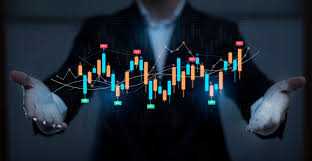
Understanding the Meaning of Forex Trading
Forex trading, also known as foreign exchange trading, entails the buying and selling of currencies in the global market. It is one of the largest financial markets in the world, with trillions of dollars exchanged daily. To navigate this vast landscape, understanding its core meaning is essential. Moreover, traders can utilize various resources, including platforms such as forex trading meaning Argentina Brokers, to facilitate their trading activities.
At its core, Forex trading revolves around the exchange of one currency for another, driven by the fluctuations in their values. The primary aim is to profit from these fluctuating exchange rates. For instance, if a trader believes that the euro will strengthen against the US dollar, they may buy euros and sell dollars. If their prediction is correct and the euro does increase in value, the trader can then sell the euros back to dollars at a profit.
The concept of Forex trading can be traced back to the establishment of currency exchange systems. Today, Forex operates on a decentralized basis, with no central exchange or governing body. It is facilitated by a global network of brokers and financial institutions that operate 24 hours a day, five days a week. This round-the-clock feature allows traders to participate in the market at any time, making it incredibly flexible.
The Importance of Forex Trading
The significance of Forex trading extends beyond mere profit-making for individual traders. It serves vital functions in the global economy. Firstly, it provides liquidity, allowing businesses and individuals to exchange currencies effortlessly. This liquidity is crucial for international trade, enabling companies to pay for goods and services across borders. Without the Forex market, the complexities of trading in different currencies would create significant hurdles in global commerce.
Additionally, Forex trading plays a pivotal role in establishing and maintaining exchange rates. These rates reflect the relative strengths of currencies and are influenced by a myriad of factors, including economic indicators, geopolitical events, and market sentiment. By engaging in Forex trading, traders contribute to the price discovery process, helping to determine the value of currencies in real time.
How Forex Trading Works

To engage in Forex trading, individuals typically open an account with a broker. A broker acts as an intermediary between the trader and the market, providing access to various currency pairs and trading platforms. The most commonly traded currencies include the US dollar, euro, Japanese yen, and British pound.
When trading Forex, it is essential to understand the concept of currency pairs. A currency pair consists of two currencies, one being the base currency and the other the quote currency. The exchange rate indicates how much of the quote currency is needed to purchase one unit of the base currency. For example, in the EUR/USD currency pair, if the rate is 1.20, it means that 1 euro is equal to 1.20 US dollars.
Forex trading is conducted via buy and sell orders. A trader places a buy order if they expect the base currency to appreciate against the quote currency and a sell order if they anticipate a depreciation. The difference between the buying and selling price is referred to as the spread, which brokers typically charge as a commission.
Types of Forex Trading
There are several types of Forex trading, each catering to different trading styles and risk appetites. The most common types are day trading, swing trading, scalping, and position trading.
Day trading involves making short-term trades that are opened and closed within the same day. This style requires a deep understanding of market trends and swift decision-making, as traders seek to capitalize on small price movements. Swing trading, on the other hand, involves holding positions for a few days or weeks to benefit from price swings. It strikes a balance between day trading and position trading, offering more flexibility.
Scalping is a more aggressive trading style where traders make numerous trades throughout the day, often holding positions for a few minutes or seconds. This approach demands constant monitoring of market conditions and quick execution of trades. Position trading is the most long-term strategy, where traders hold positions for months or even years, relying on fundamental analysis to guide their decisions.

Risks and Rewards of Forex Trading
While Forex trading presents opportunities for profit, it also comes with inherent risks. The market’s volatility can lead to significant gains or losses within a short period. One of the primary risks involves leverage, which allows traders to open larger positions than their account balance. While this can amplify profits, it can equally magnify losses, potentially leading to substantial financial consequences.
Effective risk management is crucial for successful Forex trading. Traders are encouraged to use stop-loss orders, which automatically close a position at a predetermined loss level, to minimize potential losses. Furthermore, it is vital to understand personal risk tolerance and avoid over-leveraging.
The Role of Analysis in Forex Trading
Successful Forex trading relies heavily on analysis to make informed decisions. Traders employ two primary approaches—fundamental analysis and technical analysis. Fundamental analysis examines economic indicators, interest rates, and geopolitical events to gauge the potential movement of currencies. For instance, a rise in a country’s interest rates may attract foreign investment, thereby strengthening its currency.
On the other hand, technical analysis focuses on historical price data and chart patterns to predict future price movements. Traders use various tools, such as moving averages, support and resistance levels, and indicators, to identify potential entry and exit points in the market.
Final Thoughts
In conclusion, understanding the meaning of Forex trading is essential for anyone looking to engage in this dynamic financial market. As the largest financial market globally, Forex offers opportunities and challenges for traders of all levels. With the right knowledge, tools, and resources, individuals can navigate the complexities of Forex trading while capitalizing on the vast possibilities it presents. Whether utilizing platforms like Argentina Brokers or employing analysis strategies, successful Forex trading hinges on informed decision-making and prudent risk management.
